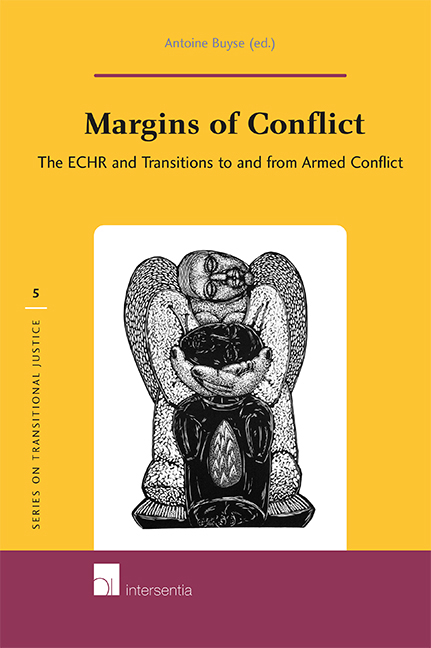Book contents
- Frontmatter
- Preface
- Contents
- Human Rights without Peace? The European Court of Human Rights and Conflicts Between High Contracting Parties
- Crisis Situations, Counter Terrorism and Derogation from the European Convention of Human Rights. A Threat Analysis
- Really Out of Sight? Issues of Jurisdiction and Control in Situations of Armed Conflict under the ECHR
- The Use of Interim Measures Issued by the European Court of Human Rights in Times of War or Internal Conflict
- Foretelling the future, facing the past. Hate speech and conflict situations under the ECHR
- The Duty to Take Preventive Operational Measures. An Adequate Legal Tool to Hold States Responsible in Enforced Disappearance Cases?
- Airborne or Bound to Crash? The Rise of Pilot Judgments and Their Appeal as a Tool to Deal with the Aftermath of Conflict
Preface
Published online by Cambridge University Press: 16 December 2020
- Frontmatter
- Preface
- Contents
- Human Rights without Peace? The European Court of Human Rights and Conflicts Between High Contracting Parties
- Crisis Situations, Counter Terrorism and Derogation from the European Convention of Human Rights. A Threat Analysis
- Really Out of Sight? Issues of Jurisdiction and Control in Situations of Armed Conflict under the ECHR
- The Use of Interim Measures Issued by the European Court of Human Rights in Times of War or Internal Conflict
- Foretelling the future, facing the past. Hate speech and conflict situations under the ECHR
- The Duty to Take Preventive Operational Measures. An Adequate Legal Tool to Hold States Responsible in Enforced Disappearance Cases?
- Airborne or Bound to Crash? The Rise of Pilot Judgments and Their Appeal as a Tool to Deal with the Aftermath of Conflict
Summary
The European Convention on Human Rights (ECHR) was draft ed more than 60 years ago, in the wake of World War II and in the midst of fears that communist dictatorship would gain firmer ground in ever increasing parts of Europe. The Court has functioned for over 50 years as a guardian of the ‘engagements undertaken by the High Contracting Parties in the Convention’, as Article 19 ECHR so succinctly formulates it. The dark shadows of war have not fully receded however. Although the State Parties to the Convention have for the most part experienced unparalleled decades of peace, armed conflict has resurged time and again, from Northern Ireland to Cyprus and Turkey, but also beyond the territories of the State Parties to the ECHR. And with the demise of the communist regimes in Central and Eastern Europe in the 1990s new waves of violence devastated parts of Europe, most violently in the States of the former Yugoslavia and in the Caucasus. Human rights, such as those enshrined in the European Convention, have not brought about the end of wars, but they have contributed to the strengthening of peace and they offer a myriad of tools to counter armed conflict and to deal with its aftermath.
This edited collection arose from a seminar held at Utrecht University in October 2009 under the aegis of the research focus on conflicts and human rights, in which both legal scholars and academics from other disciplines cooperate. Its aim was to address some of the salient issues regarding the use of the European Convention in periods of tension, which could both involve transitions from peace to armed conflict and vice versa. It thus adheres to a broad conception of transitions, which do not always concern the often-researched transition from war to peace but also the other way around. This reflects the reality in many States which oscillate between war and peace. It is important to emphasize that this volume does not focus on the period of armed conflict itself, with its particular connection of human rights to humanitarian law – such a topic would merit a book of its own. Rather it studies the margins of conflict, as the title of this volume indicates.
- Type
- Chapter
- Information
- Margins of ConflictThe ECHR and Transitions to and from Armed Conflict, pp. v - viiiPublisher: IntersentiaPrint publication year: 2010



